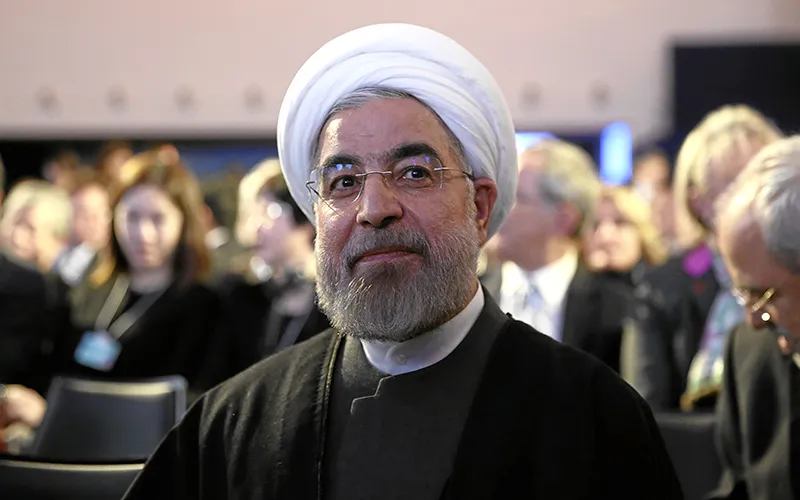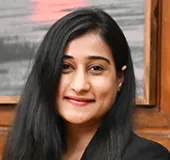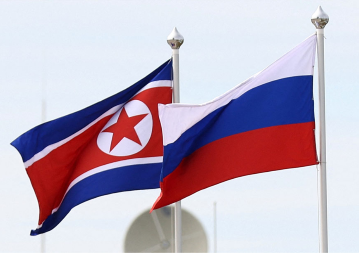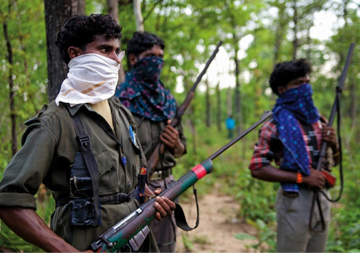On December 9 and 10, the Islamic Republic of Iran organised the first international conference on 'World against Violence and Extremism (WAVE)' as per the proposal made by President Hassan Rouhani at the 68th UN General Assembly. The UNGA had adopted the proposal in the form of a resolution on September 25 this year.
A couple of days before the conference, Iran had already launched its first air-strikes against the Islamic State (IS) in the Diyala province of Iraq, knowing well that a terrorist outfit such as the Islamic State of Iraq and Syria (ISIS) is unlikely to be deterred by a war of words.
To allay the fears of other coalition partners, Iran and the US issued public denials of any hints that the air-strikes were coordinated. However, coordinated denials also indicate something.
While the air-strikes clearly demonstrated Iran's intent and capability to take on the ISIS, the international conference was meant to demonstrate something far more significant. It was not only an assertion of Iran's 'regional power' status but also a projection of the notion that Iran is a responsible force for peace and stability in the region.
The conference was also meant to convey that though Iran is an Islamic State ruled by religious clerics, its version of Islam does not permit either violence or extremism (takfiri) -- a point that is likely to be contested by the Arab rulers in the Gulf, the Israelis and the Americans who would be of the view that the first Islamic Extremist state to be set-up in the world was the one founded by Ayatollah Khomeini in Iran after the 1979 revolution.
Acknowledging Iran's primacy in the region, the conference was a well-attended gathering of former Prime Ministers, current Foreign Ministers, scholars from Think Tanks, academics from universities, Islamic clerics, cardinals, bishops and journalists from over 50 countries. ORF was represented by its Director, Sunjoy Joshi, and the author himself.
Most significantly, the conference brought together the Foreign Ministers of Iraq, Syria, Lebanon and Yemen - four of the most troubled states in the region and the four states on which it has undisputed control or influence.
Iranian President Hassan Rouhani, inaugurating the conference called on the "countries of the region to move in the direction of a Middle East in peace and security through exchange of views, coordination, coalition-building and adoption of reasonable and rational policies. He said there was no need for Super-powers, pursuing their own particular interests, to determine the fate of the people in the region".
Though eminently sound, both ideas seem so improbable at this juncture. Neither the regional countries nor the super power are done with the region yet. The destruction and disintegration is still a work in progress and no one knows the end result.
Despite the fact that Iraqi and Syrian Foreign Ministers were present at the conference, neither made much of an impact. The first spoke in generalities and the second was too indisposed to talk. Worse still was the unwillingness of all the important speakers to name the culprits. The closest reference to the culprits was an opaque and an indirect one.
President Rouhani in listing out certain specific proposals called on the "countries that have assisted the formation of terrorism in our region and have organised and financed terrorists should publicly denounce them, cease their direct and indirect financial assistance and also cooperate with the victimised countries in their struggle against terrorism and extend to them financial, military and intelligence assistance."
This is the kind of language that can be used by any country in the region against another. While all those present in the conference knew fairly well which countries were being blamed (Saudi Arabia, UAE, Qatar, and Turkey), the opposite side too can use the same words to blame Iran's alleged involvement in Bahrain, eastern Saudi Arabia, Iraq, Syria, Yemen and Lebanon in fanning unrest.
One country that was clearly picked out for naming and shaming was the United States - the super power that has "no business to be fighting wars in the region" and the one that is the pillar of support for the "oppressive regimes of Israel and Saudi Arabia" as one professor from Lebanon put it. A cardinal from the Catholic Church in Washington, who ministers to the spiritual needs of Congressmen, Senators, State Department officials and the Pentagon, had a tough time responding to the hostility of the questioner who challenged the democratic and human rights credentials of the US. The questioner said that the US has consistently propped up autocratic regimes that have sponsored the most barbaric terrorist groups in the region. It was repeatedly stressed that 'blame game was not the agenda of the conference". But others opined that "how could you solve a problem, if you refuse to name it".
Lot of younger scholars in the Institute for Political and International Studies, the Think Tank of the Ministry of Foreign Affairs that had organised the conference, hoped for actionable outcomes, but none was proffered.
However, for the common Iranian, it is Qaseem Suleimani who is the hero of the nation. Suleimani is the head of the para-military force - the Al-Quds which has been training the Iraqi and Syrian soldiers in fighting the ISIS and the Jabhut-ul-Nusra in their respective countries. The man in the street had no doubt that if there is one country in the region that can take on the ISIS and roll back its march, it is Iran and none else.
With the Iraqi army, trained at a cost of $8 billion by the US, collapsing like a house of cards before the ISIS, Iran's forces alone remained the bulwark against it. Iranian leaders too were not overtly disturbed by the ISIS and appeared fully confident of tackling the terror group. But they are not sure how far they could go, without turning the wrath of the US-led Coalition against Iran itself.
If the Coalition has to "adopt reasonable and rational policies", as suggested by President Rouhani, they have to support the Iranian military forces to complete the job with aerial support from the US. That is the only way the territorial gains of the 'Islamic State' can be rolled back. That may well happen since America is known to exhaust all options before it chooses the right one.
(The writer is a Distinguished Visiting Fellow at Observer Research Foundation, Delhi).
The views expressed above belong to the author(s). ORF research and analyses now available on Telegram! Click here to access our curated content — blogs, longforms and interviews.




 PREV
PREV


